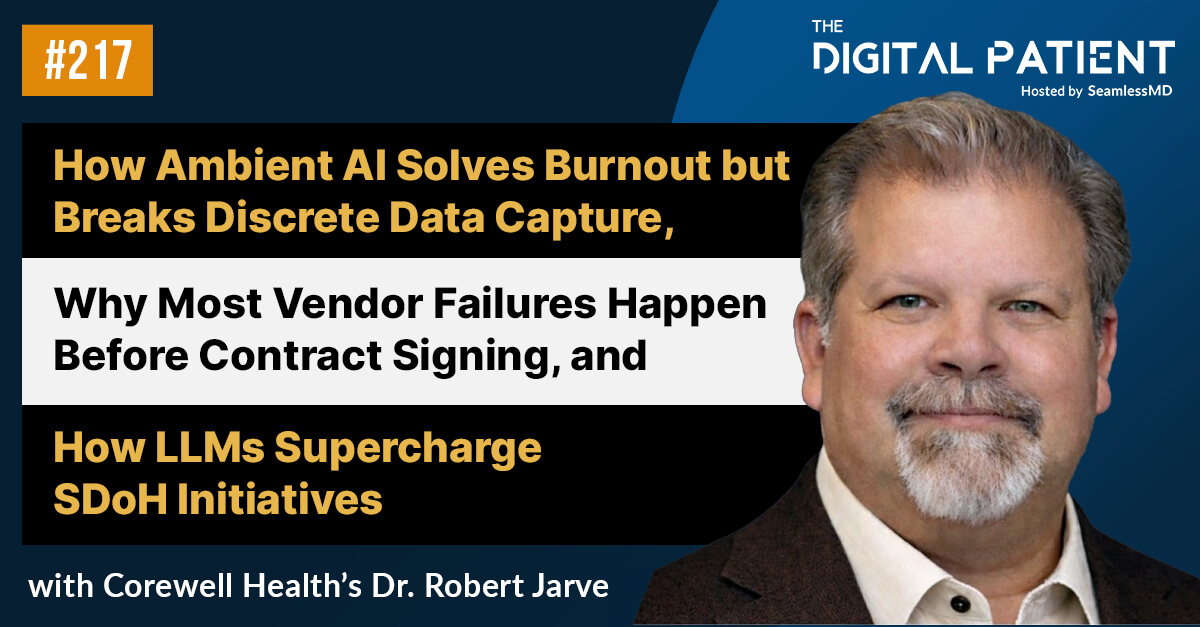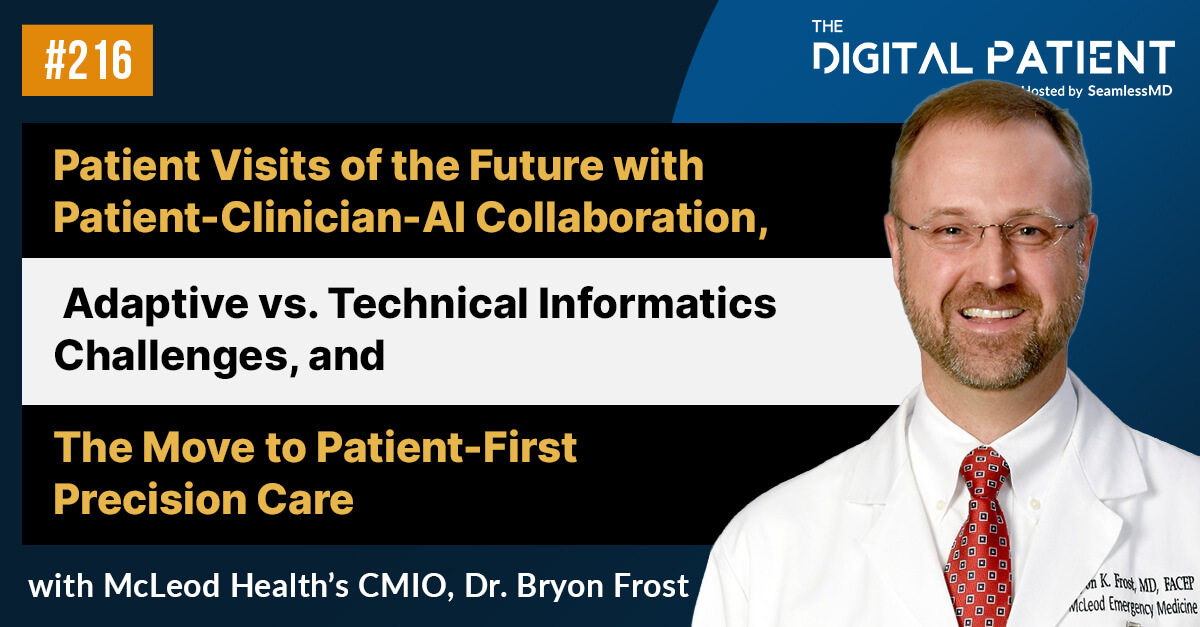Subscribe on: | | | | |
Video:
In this episode of the …´Ω‰÷±≤• Podcast, Dr. Joshua Liu, Co-founder & CEO at …´Ω‰÷±≤•, and marketing colleague, Alan Sardana, discuss how Digital Patient Engagement helps providers, payers, and patients succeed with value-based care. See the full show notes below for details.
Guest(s): Dr. Joshua Liu (), Co-founder & CEO at …´Ω‰÷±≤•
Episode 6 – Show notes:
[03:00] How healthcare delivery evolved prior to value-based care and why fee-for-service made sense in the early to mid/late 1900s;
[05:30] Why value-based care was developed and how incentive models changed to promote better quality for patients while controlling costs for the payer;
[07:30] How value-based care focuses less on “sick care” and more on “proactive” and “preventive” care;
[08:25] Defining various value-based incentive programs, such as the , and ;
[10:30] How value-based care models can have unintended consequences on provider resources, such as more time spent on documentation and data collection;¬Ý
[11:30] How the collaborative culture necessitated by value-based care models is a positive force for healthcare;
[12:30] How value-based care requires investment especially with IT systems;
[13:20] How value-based care has an ongoing iterative process and why providers may disagree on the appropriate metrics, such as readmission reduction targets;
[14:00] The history of bundled payments starting in the 1990s and how the components included in a bundled payment evolved to include the entire episode of care (e.g. inpatient + post-acute care period);
[15:30] Why consensus on the concept of outcome-based reimbursement is necessary for progress;
[17:20] How validated patient-reported outcome (PRO) survey tools were initially collected on paper and then telephone, the challenges associated with each modality, and finally how Digital Patient Engagement & PRO platforms such as …´Ω‰÷±≤• solves these challenges;
[18:50] How Digital Patient Engagement platforms collect patient-reported outcomes (PROs) across the patient journey and allows for a much richer data set with more granularity;
[20:00] How a patient’s definition of “value” is often different than a provider’s definition, and how Digital Patient Engagement platforms can ensure the patient’s values are brought to light;
[21:40] Why phone calls to patients are not a scalable medium for patient engagement, and how Digital Patient Engagement can support providers to deliver value-based care models at scale;
[22:22] How value-based care demands more from the provider and how that affects provider well-being;
[23:25] How technology can collect the patient voice at scale, automate personalized care, and flag potential issues to shift care from being reactive to proactive;
[25:30] Why manual data collection is not viable and how Digital Patient Engagement can bridge this gap;
[26:55] How the shift from paper to digital for patient care is akin to Netflix vs. Blockbuster, e.g. with personalization and recommendations built into the platform;
[28:40] How Digital Patient Engagement elevates the patient experience by helping patients communicate what they value most;
[30:30] How Digital Patient Engagement improves outcomes such as LOS, readmissions, ER visits, SNF utilization and patient satisfaction;
[31:00] How Digital Patient Engagement supports standardization and improves patient care consistency by reducing the chance of human error with provider turnover/staff change;
[33:00] How Digital Patient Engagement can measure variation in care;
[33:33] How Digital Patient Engagement offers a scalable way to change practice by updating patient instructions & protocols from a single centralized repository;
[34:55] How …´Ω‰÷±≤• improves provider wellbeing by reducing patient phone calls and visits to the hospital;
[35:35] How …´Ω‰÷±≤• improves patient and family satisfaction;
[36:25] How value-based care requires the healthcare team to focus on the time patients are spent outside of their four walls;
[37:55] How …´Ω‰÷±≤• prompts patients preemptively to avoid common problems after surgery;
[38:33] How the Hernia Surgery program led by Dr. Jeffrey Blatnik at Washington University School of Medicine in St. Louis (WUSTL) used …´Ω‰÷±≤• to reduce patient phone calls by 65% (statistically significant);
[38:50] How the Thoracic Surgery program at Michael Garron Hospital led by Dr. Carmine Simone used …´Ω‰÷±≤• to reduce ER visits for common problems such as a blocked chest tube by providing automated, self-management education and by flagging patients to come into the clinic instead of the ER (); and
[39:50] How COVID-19 has impacted patient care and how the pandemic has accelerated patient expectations as consumers for digital patient engagement;
Useful Links:
.svg)





